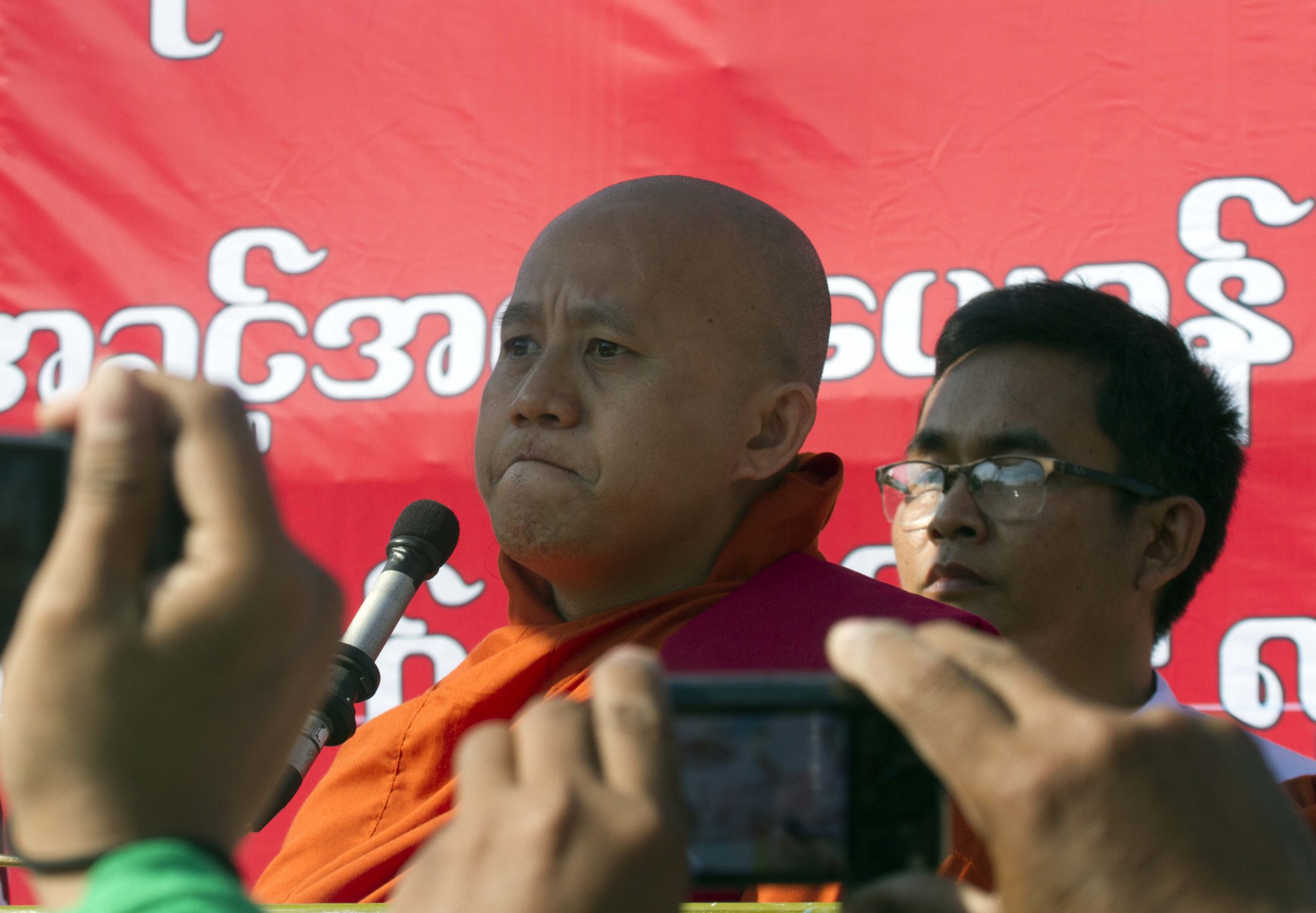Controversial nationalist monk Wirathu lambasted the UN’s special rapporteur for human rights in Burma, Yanghee Lee, in a speech on Friday at the Kyeikkasan Grounds in Rangoon’s Tamwe Township. He called her a “whore” for her alleged bias towards the country’s Rohingya Muslim minority.
“We have already made public our Race Protection Law, but without even studying it, this bitch [Burmese: kaungma] keeps on complaining about how it is against human rights!” he shouted to hundreds of supporters on Friday afternoon.
“Can this whore really be from a respectable family background?” he thundered, to which the audience responded, “No!”
“Don’t assume you are a respectable person, just because you have a position in the UN,” he continued. “In our country, you are just a whore.
“If you are so willing, you may offer your arse to the kalar [racist term meaning ‘blacks’]. But you will never sell off our Arakan State!”
The UN had not responded to the insult at the time of press.
[related]
On Friday morning, a group of some 500 monks and lay supporters, led by hardliners Wirathu and Parmaukkha, marched from Kyay Thon Pagoda, near Shwedagon Pagoda, to Tamwe Township east of the city centre, holding placards reading “UN decisions cause problems in Burma – we don’t want that!”
Among the marchers were members of the Arakan National Network, which has condemned the UN’s call for Burma to grant citizenship to members of the Rohingya community who were born in the country.
Wirathu’s speech coincided with Yanghee Lee’s press conference in Rangoon on Friday when she concluded a 10-day trip to Burma, her second official visit to the country.
“Fundamental rights are not hierarchical – they aren’t conditional upon one another. They’re inalienable,” said Lee on Friday. “You can be assured that in all my meetings with government interlocutors, I use the word ‘Rohingya’. The rights of Rohingya people must be protected, promoted and upheld.”
In December, the UN General Assembly approved a non-binding resolution, drafted by the European Union, that called on Naypyidaw to extend citizenship rights to the Rohingya and remove the mobility restrictions placed on them. The resolution also urged an investigation into rights abuses in Arakan State, equal access to essential services, and reconciliation between Buddhist and Muslim communities in the region.



